Some ten days before Christmas, the Netherlands went into lockdown for the second time in 2020.
During this dubiously titled “intelligent lockdown” – that was enforced between late March and early May – locales such as bars, restaurants, schools, entertainment venues and gyms had been ordained to close their doors. All non-medical, contact-based professions (e.g. driving instructor, hairdresser, tattooist, etc.) were temporarily suspended as well.
In addition to the aforementioned, the festive season do-over also extended to the likes of clothing stores, furniture warehouses and garden centres, just to name a few.
This essentially meant that, with the exception of supermarkets, bakeries, butchers, pharmacies, petrol stations and, surprisingly enough, liquor stores, everything was shut down.
Moreover, a nationwide ban on fireworks was imposed in order to prevent emergency wards, already bursting at the seams due to the influx of COVID-19 patients, from being completely overrun on New Year’s Eve.
The Phantom of First World Resilience
Personally, I had very few issues with the implementation of said measures. My role as a family caregiver – to which I am far more dedicated than any paid position I have ever held – requires me to minimise contact with others and I would be doing so even if there was no pandemic to speak of.
I did, however, recognise that these measures were bound to have a profound effect on the lives of many of my fellow citizens and it is by no means my intention to downplay the trials and tribulations they faced as a result. Nevertheless, there were two topics of discussion, repeatedly brought to the fore in the media, that I found downright pathetic.
The Issues at Hand
First of all, I was startled by the number of education experts and parents that were convinced the closing of schools for an additional three weeks over Yuletide would see an entire generation of future leaders succumb to irreparable emotional trauma.
Apart from alluding to the psychological effects of physical confinement and social deprivation, it struck me that the majority of parents who took the time to call into the radio shows I often listen to whilst preparing meals had a tendency to elaborate on how the “hard lockdown” impacted their own lives rather than those of their children.
More often than not, the complexities of combining family and professional responsibilities were highlighted and, inevitably, the government was blamed for the unnecessary disruption of an otherwise enviable existence.
Secondly, it became painfully apparent that there is a sizeable group of individuals who do not consider life worth living if they are unable to christen a new year by igniting copious amounts of nitrate bombs or literally anything else with the capacity to leave eardrums shattered.
In both cases, these “victims” of an increasingly “totalitarian” regime generally concluded their whining with an ode to their own resilience or, better yet, that of the Dutch nation. Overexposed to these first world problems and deeply confused by their contradictions, I was inclined to turn to drinking.
Leffe Blond
On the Monday before Christmas, whilst making my weekly supermarket run, I noticed that Leffe Blond was on offer that week. Those of you familiar with this elegant Belgian abbey beer will, in all likelihood, agree that this was an opportunity not to be wasted.
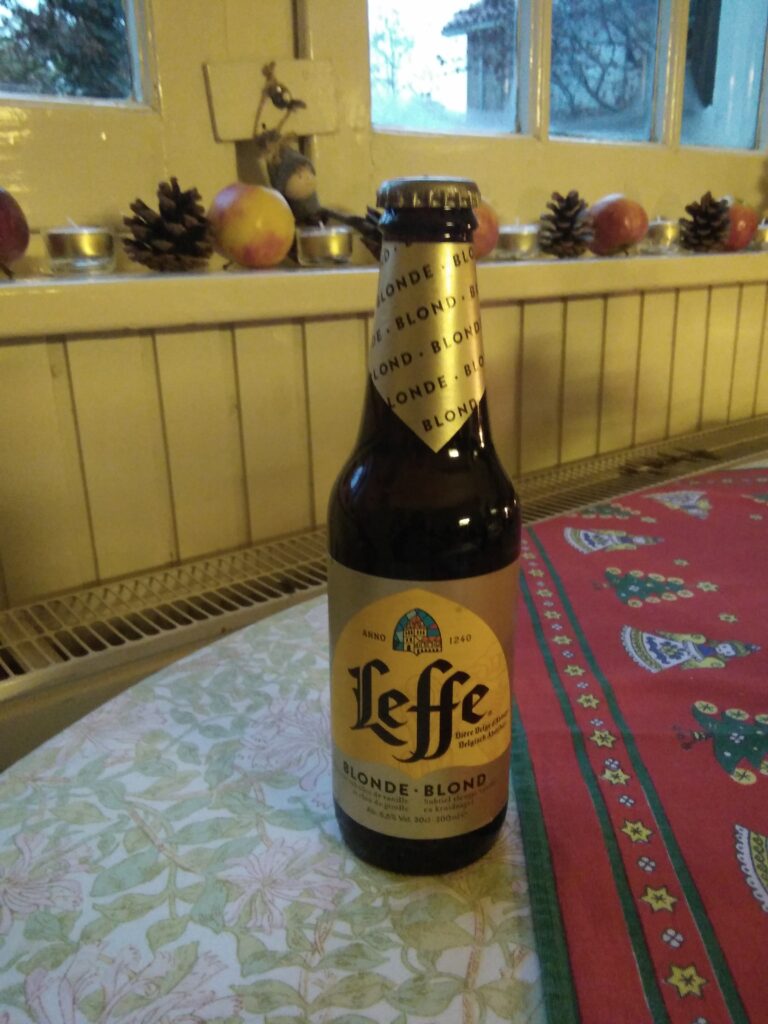
An approachable blond in the sense that it goes down easily, Leffe’s recipe is known to please a broad range of palates with its creamy mouthfeel and smooth overall character. It pours clear gold with a fizzy head, has a malty aroma with hints of herbs and spice, and a sweet (but not saccharine…) full-bodied taste lifted by medium carbonation.
I could not help but crack one open as I went about cooking dinner that night and was contentedly smacking my lips when Dieuwertje (yes, that is an actual name…) called in to share her tragic tale.
A Woman Scorned
At wits’ end with her domestic situation, Dieuwertje detailed the challenges she faced as an ambitious process manager and mother of two schoolboys who are always either hungry or bored. Her husband, an equally ambitious scrum master (whatever that may be…) was also working from home and having trouble concentrating during online team briefings and brainstorming sessions.
Both were extremely passionate about their jobs and resented the government for temporarily depriving their children of formal education and after-school care, thereby affecting their own ability to continue working fifty hours a week.
“For goodness sake, you need a license to catch a fish but anyone who proudly declares process management to be their calling can go ahead and have themselves a child!”, I thought out loud before taking another swig of my beer.
Dieuwertje presented more compelling arguments to strengthen her case, predicting an economic Armageddon if parents with demanding jobs like hers would be forced to stay home with their progeny any longer. It would be best for everyone if we went back to the old “normal” immediately, she concluded.
“Don’t worry, dear Dieuwertje, you’re a process manager, you’ll find a way to make it work…”, I muttered to myself as I grabbed a fresh Leffe Blond from the fridge.
Leffe Blond: Origins of a Brew
The beer owes its name to the Notre-Dame de Leffe, an abbey of Premonstratensian Canons – also referred to as Norbertine or White Canons – that was founded in 1152 on the banks of the River Meuse in the southern Belgian province of Namur. The community was characterised by its hospitality and pilgrims were always welcomed with open arms.
In the year 1240, the canons decided to build a brewery so that they could prepare a healthy, invigorating beverage for their visitors to enjoy. I say healthy because, at the time, diseases like the plague ran rampant throughout the region and the boiling of water during the top fermentation process helped kill all germs.
Using knowledge passed down from generation to generation and ingredients found in the wild near the abbey, the canons gradually developed a unique ale with a subtle taste and high alcohol content (6.6% ABV in contemporary times).
The story goes that, during its heyday in the first half of the eighteenth century, a master brewer who worked at the abbey (but was not a member of the religious brotherhood…) brewed a beer so delicious that the parishioners preferred to get drunk over attending mass.
By the final decade of that very same century, at the height of the French Revolution, the abbey had been abandoned and the brewery destroyed.
Leffe: The Resurrection
Although the abbey was re-established in 1929, it would take until 1952 before then abbot Nys and master brewer Albert Lootvoet decided to resurrect Leffe’s brewing tradition and concoct a range of delicious beers based on its well-guarded original recipe. This agreement between the Leffe abbey and Lootvoet brewery is claimed to have been the first of its kind.
While Anheuser-Busch InBev, the world’s largest brewer, has since taken over and all Leffe beers are now brewed at the Stella Artois brewery in Leuven, a commitment to honour the proud Leffe tradition has been made and royalties continue to be paid to the abbey.
And rightly so, in my opinion – the White Canons of Leffe deserve to be rewarded for their exceptional benefaction to all beer lovers!
Affligem Blond
I made another weekly supermarket run on the Monday after Christmas. Leffe Blond was sold out but I was pleased to find there was a different blond on offer, one that I did not recall having sampled before. The story of Affligem is very similar to that of Leffe, although the former did enjoy a ninety-year head start over the latter.
Legend has it that a group of six knights, tired of the frenetic lifestyle they led, decided to lay down their swords and become monks. These newborn pacifists went on to establish a Benedictine abbey at Affligem in 1062. Not long after, they started brewing beer in order to avoid serving their guests contaminated water.
Known as the Black Monks in reference to the colour of their religious garbs, the Benedictine order, much like that of the Norbertines, is also characterised by a strong sense of community. To this day, the monks of Affligem congregate on a daily basis for the sake of quality control and the guests of the abbey are welcomed with a range of Affligem beers based on a brewing tradition that stems from a time when the earth was still thought to be flat.
Affligem Blond in Modern Times
Be that as it may, it has been a while since any brewing activity has taken place in Affligem. Since March 3, 1940, to be exact, when father Tobias Vergauwen brewed one last batch of beer at the abbey. He would continue to assist in the concoction of recipes for many years while Affligem beer was being produced externally. The abbey eventually entered a cooperation with De Smedt brewery, situated in the nearby town of Opwijk, in 1970.
In the year 2000, Heineken became the majority shareholder in De Smedt and subsequently renamed it the Affligem brewery. Despite this change in ownership, the Affligem abbey remains owner of the beer brand in order to ensure their age-old recipes will not be significantly altered. Much of the revenue garnered in this manner is donated to charitable causes near and far.
More Hubris
It was not until New Year’s Eve that I opened my first Affligem Blond. Half expecting a taste indistinguishable to that of the Leffe variant, I was almost shocked by its watery and slightly sour nature superseded by a distinctly malty aftertaste. With a bright gold pour and frothy white head, a sharp bittersweet nose, and malty, citrus infused taste, the beer is easy to drink despite its 6.7% ABV.
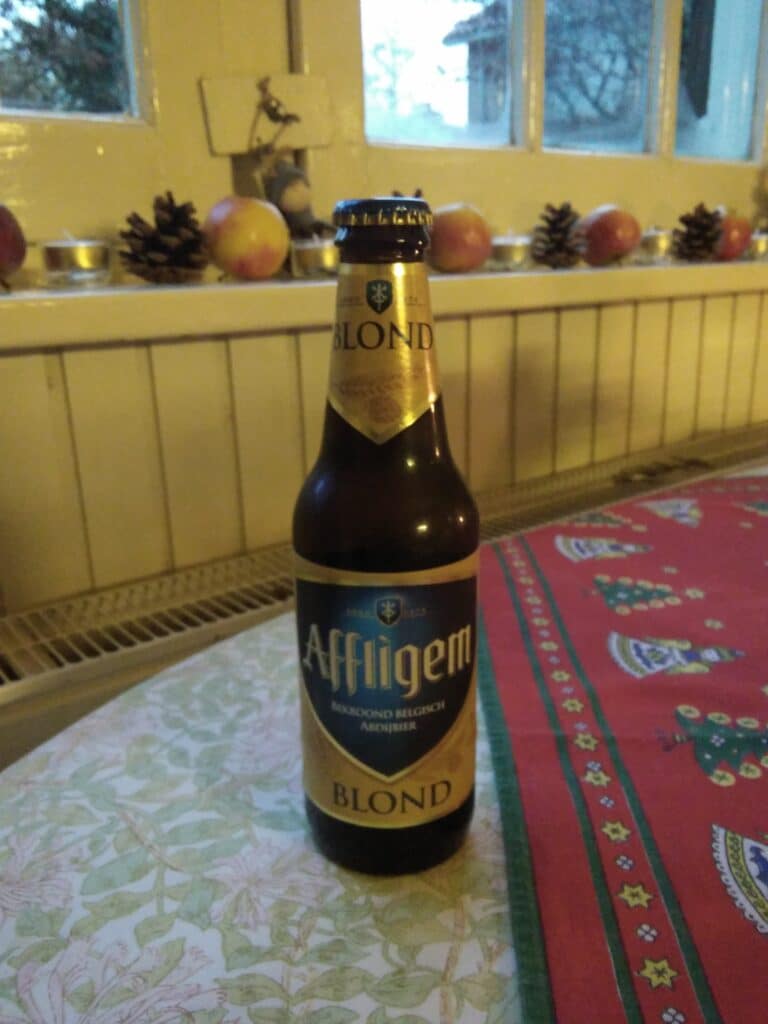
Waiting for our spinach lasagna to heat up, I turned on the radio just in time to be enlightened by the views of a self-proclaimed patriot named Tom – or Tim.
Infuriated by the fireworks ban, he reminded all us listeners that treating your neighbours to a bit of noise pollution on New Year’s Eve was a proud Dutch tradition that had withstood the test of time and thus urged everyone to withstand the draconian regulations enacted by an authoritarian ruling class that he referred to as “the enemy of the people”.
A Man Downtrodden
They had taken everything away from him, he explained. They were preventing him from exercising, meeting up with friends for dinner, wooing females at clubs on weekends but, under no circumstances, would they deny his God-given right to enter the new year with a bang.
I felt a strong urge to call in and ask Tom – or Tim – whether he would be wearing clogs, another glorious Dutch tradition that has lost all traction in the modern era, during his righteous revolt against our oppressors. Instead, I treated myself to another Affligem Blond.
By the time we sat down for dinner, I was already tipsy. Much to my own surprise, I managed to stay awake past midnight. As I was dozing off in bed there was a loud explosion right outside my house. It would take another thirty minutes for me to fall asleep and I made good use of that time cursing Tom, or Tim, and everybody like him.
Last Jugglings
I returned to the supermarket on the first Monday of the new year and decided to give the Affligem Fris (Fresh) Blond 4.6% a try. The name says it all, really. I cannot imagine the Black Monks of Affligem getting together and feasting on this bland, though not entirely disgusting, substitute of the original but I am sure that, somewhere out there, a Heineken marketing executive is patting themselves on the back for having hereby made a tangible contribution to humankind.
That evening, whilst chopping vegetables and sinking piss like an Antipodean, a voice of reason arose from the airwaves. Adnan was eleven years old when civil war broke out in the former Yugoslavia.
As a result, he was unable to attend school for almost four years. Years, not weeks. He was fifteen and did not speak a word of Dutch when he arrived in the Netherlands. In the face of countless obstacles, he ultimately persevered to obtain a professional degree. Nowadays, he has a stable job that pays the bills and a family of his own.
His two cents on the trending topics at hand came down to this: Your children want, and need, to feel safe and loved. As long as you, their parents, are capable of creating an environment in which they do, they will be fine.
When asked how he had ushered in the new year, he described his family’s annual escape to the tranquility of a bungalow park in the woods. He did not appreciate all the fireworks, the sounds reminded him of the mortar shells that had ravaged the town where he was born.
I could not help but wonder if Dieuwertje and Tom – or Tim – got the memo.
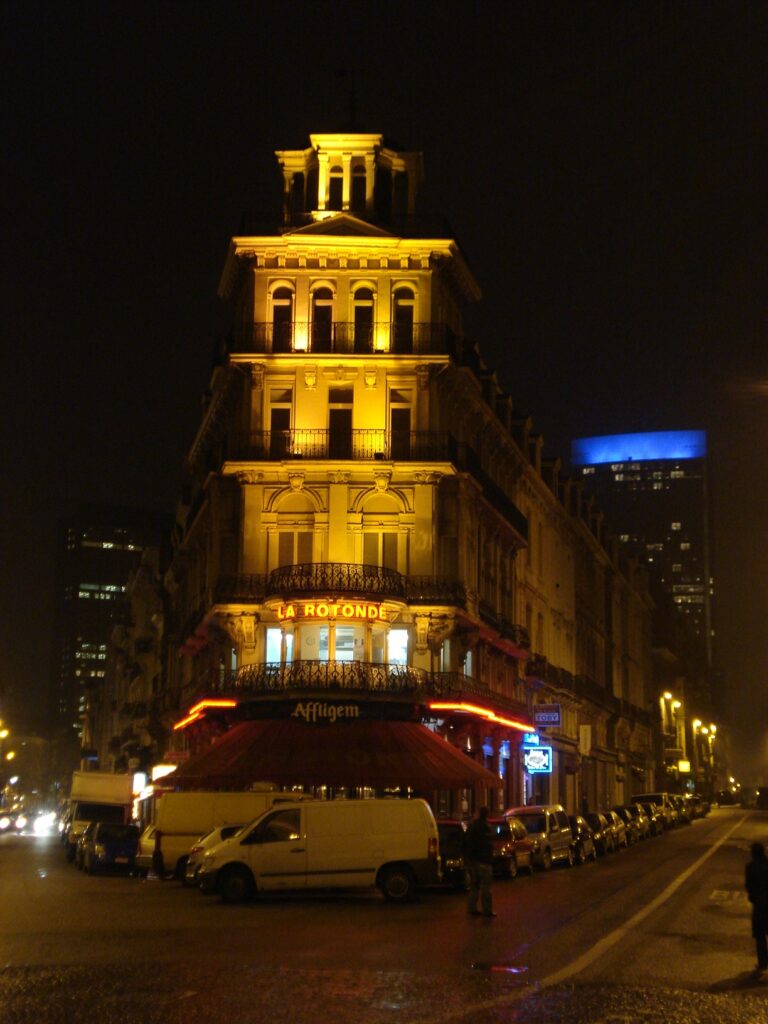

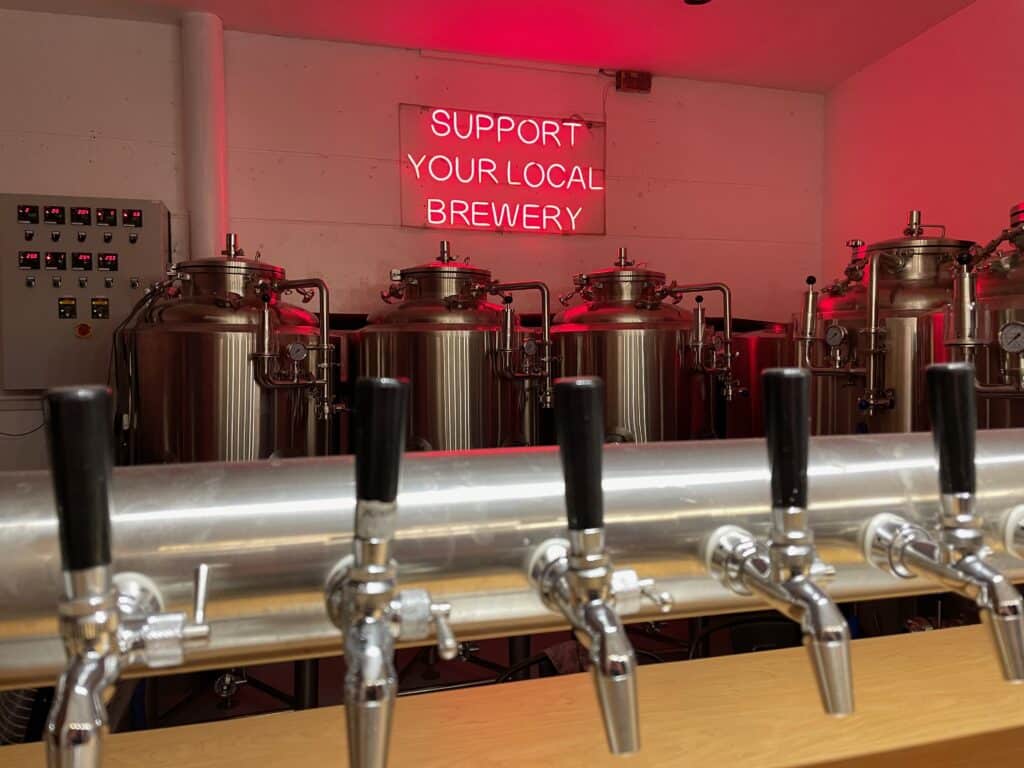
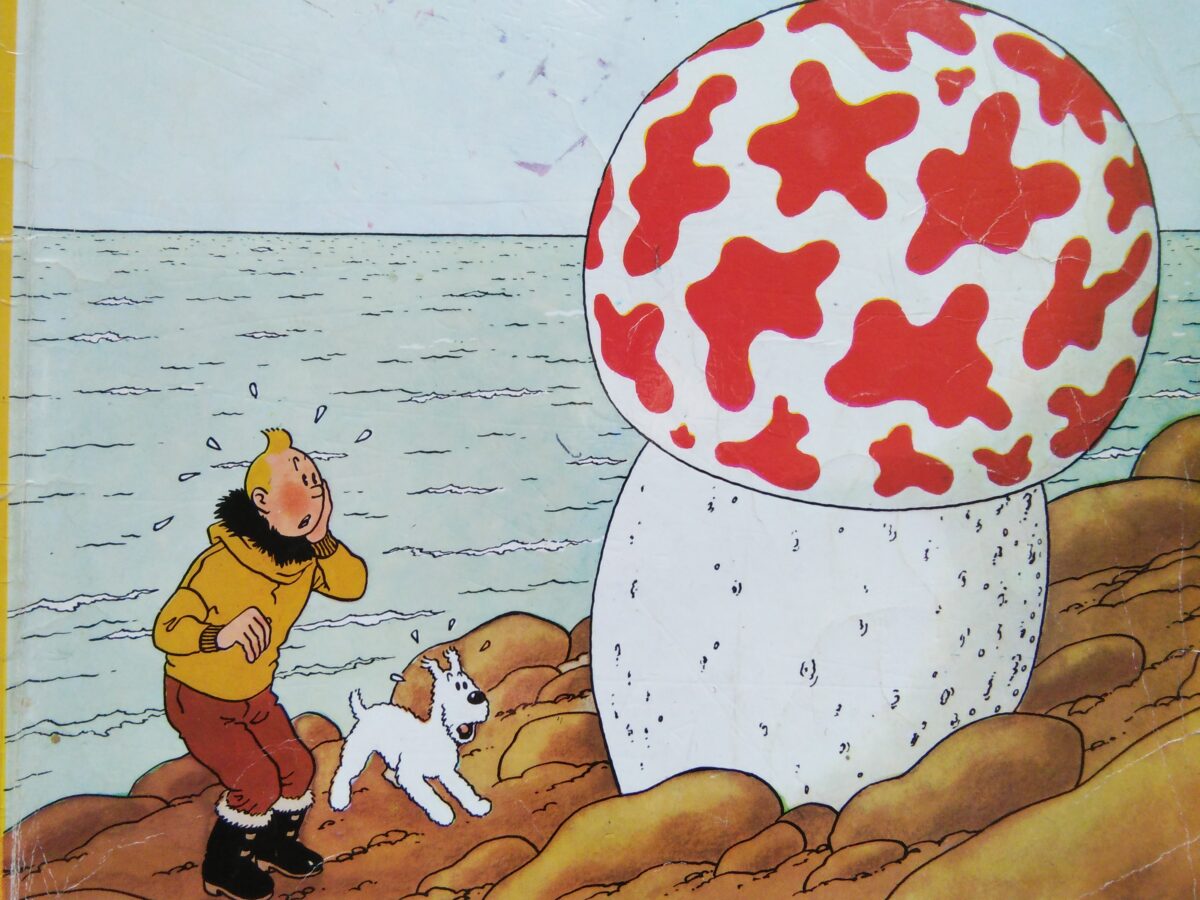
Leave a Reply